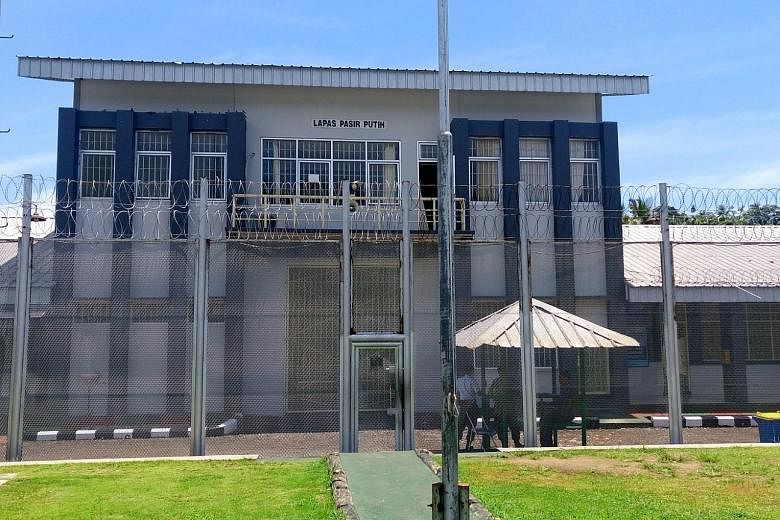Prisons in Indonesia, notorious for being overpopulated and under- staffed, remain a fertile breeding ground for pro-ISIS militants, according to a new study.
These structural problems within the prison system will continue to defeat efforts in deradicalisation, disengagement and rehabilitation, say analysts from the Institute for Policy Analysis of Conflict (Ipac) in a report released yesterday.
As a result, inmates loyal to the Islamic State in Iraq and Syria are able to recruit and radicalise fellow prisoners with impunity, as well as direct attacks from behind bars, says the study by the Jakarta-based think-tank.
"Prisons are overcrowded and understaffed, corruption is rife, and inadequate budgets make it easier for well-funded extremists to recruit inmates when they can offer extra food," Ipac director Sidney Jones said yesterday.
"No deradicalisation programme is going to be effective unless some of these issues are addressed."
There are more than 200,000 inmates in 477 correctional facilities across Indonesia, of which some 300 or more prisons and detention centres are overcrowded.
The worst is a facility in Banjarmasin, South Kalimantan, which has more than six times its capacity, leading the warden to turn toilet areas into holding cells.
Indonesia has about 16,500 prison officers, most of whom have not been adequately trained in areas including the handling of high-risk inmates. With these officers on different shifts in a day, only some 3,650 staff are on duty at any one time.
This represents a ratio of about one officer to 55 inmates, making it almost impossible to closely monitor all prisoners, including 220 terrorist convicts.
While the number of inmates in jail for terrorism-related activities is low relative to the total prison population, the stakes are far higher with these "high-risk" offenders.
The risk is exacerbated with the rising number of terrorist convicts, with more than 120 jailed this year.
The radicalisation of common criminals by pro-ISIS inmates in prison continues to be a nightmare for both the police and prison officials, according to Ipac.
At least 18 former criminal offenders have been involved in terrorism cases in Indonesia since 2010, and most were radicalised in prison.
In one case, an inmate was recruited after he was involved in fights. Two others were recruited because they wanted better food, or had found the tight-knit community of terrorist inmates appealing.
Another factor in the radicalisation of inmates is the presence of jailed ideologues such as Abu Bakar Bashir, the spiritual leader of the old Jemaah Islamiah terror network, and Aman Abdurrahman, who is said to have ordered the Jan 14 attack in Jakarta which killed eight people, including the four perpetrators.
Both Bashir and Aman are known to have followers in and out of prison, and have played active roles in the radicalisation of inmates.
Efforts have since been made to isolate the militant leaders to prevent the spread of violent ideology.
The Ipac report also says there is "probably no alternative to isolating the most hardline extremist prisoners in one or two facilities with specially trained staff so that controls on visitors, communications and outside donations can be strictly enforced".
Meanwhile, lawmakers on Tuesday asked Parliament for more time to deliberate on proposed legislative changes to beef up the country's anti-terrorism laws.
These include allowing the police to hold suspects involved in terror attack plots for up to six months, instead of a week, as well as making it an offence for citizens to join militant groups such as ISIS overseas.

